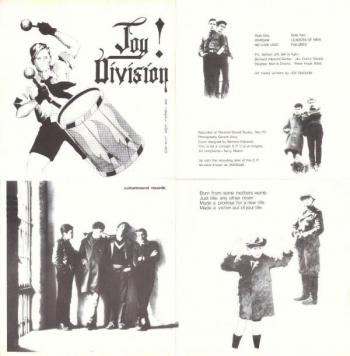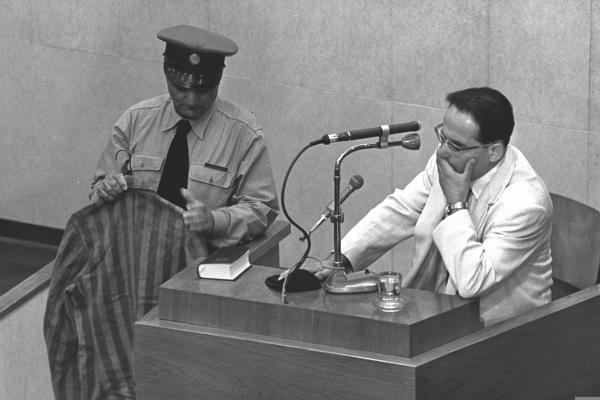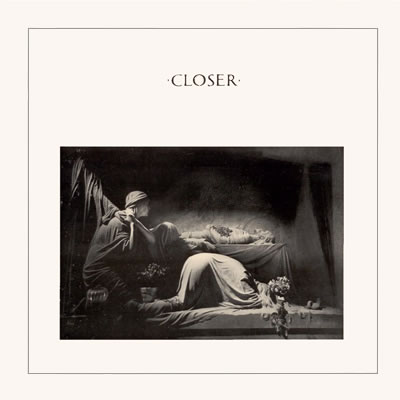Solidarity
Versione dei Gogol Bordello feat. Bernard Sumner (New Order/Joy Division), Neil Newton (Angelic Upstarts), Zachery Allan Starkey (ZAS), and Steve Sidelnyk (Massive Attack, Primal Scream)

2023
Give them hope, give them strength, give them life
(continua)
(continua)
inviata da Dq82 27/8/2024 - 11:39
Leaders of Men

[1978]
Nell'EP di debutto "An Ideal For Living", quando forse il gruppo si chiamava ancora Warsaw
Testo trovato su Genius
Nell'EP di debutto "An Ideal For Living", quando forse il gruppo si chiamava ancora Warsaw
Testo trovato su Genius
Born from some mother's womb
(continua)
(continua)
inviata da Bernart Bartleby 2/12/2021 - 21:23
No Love Lost

[1978]
Nell'EP di debutto "An Ideal For Living", quando forse il gruppo si chiamava ancora Warsaw
Testo trovato su [[|Genius]]
Nell'EP di debutto "An Ideal For Living", quando forse il gruppo si chiamava ancora Warsaw
Testo trovato su [[|Genius]]
Joy Division took their name from the novel "The House Of Dolls" by Jewish author Ka-Tzetnik 135633 (real name Yehiel Feiner, or Yehiel De-Nur), an Auschwitz survivor (his pen name means "Concentration Camper", and 135633 was his number). He wrote about the horrors committed by the nazis. "The House Of Dolls" is about Joy Division - Jewish women in concentration camps who were made into sex slaves for the pleasure of Nazi soldiers. He claimed it was inspired by the fate of his younger sister who did not survive the Holocaust.
The spoken part from 'No Love Lost' is taken directly from the book.
(nightandday, su Songmeanings)
The spoken part from 'No Love Lost' is taken directly from the book.
(nightandday, su Songmeanings)
So long sitting here, didn't hear the warning
(continua)
(continua)
inviata da Bernart Bartleby 2/12/2021 - 21:16
Atrocity Exhibition

Dall'album "Closer" del 1980. Non è propriamente una canzone contro la guerra, bensì contro il voyeurismo per le atrocità, ma penso che possa stare nel sito.
Asylums with doors open wide
(continua)
(continua)
inviata da Renato Stecca 15/10/2012 - 17:40
Non credo sia una contro il voyeurismo per le atrocità, poiché parla della malattia di Ian Curtis.. Poi il testo è
Asylums with doors open wide,
Where people had paid to see inside,
For entertainment they watch his body twist,
Behind his eyes he says, 'I still exist.'
Asylums with doors open wide,
Where people had paid to see inside,
For entertainment they watch his body twist,
Behind his eyes he says, 'I still exist.'
Heinrich 21/5/2016 - 11:05
Confermo che il primo verso è correttamente: "Asylums with doors open wide"...
Quanto alle interpretazioni, Heinrich ha sicuramente ragione: Ian Curtis soffriva di una forma abbastanza grave di epilessia e quella patologia, unitamente ai potenti farmaci che prendeva, contribuirono non poco a portarlo alla depressione e al suicidio. "La gente che paga per il divertimento di vedere il suo corpo contorcersi" non è che il pubblico che assiste all'esibizione dei Joy Division e alle particolari movenze di Ian Curtis, volte ad esorcizzare il suo male...
Ma ciò non toglie che la canzoni parli anche del "circenses", che spesso purtroppo si accompagna al "panem" per molta gente, e all'orrore ed al mare di sangue di cui è impregnata la Storia... La penultima strofa, in questo senso, è inequivocabile.
Quanto alle interpretazioni, Heinrich ha sicuramente ragione: Ian Curtis soffriva di una forma abbastanza grave di epilessia e quella patologia, unitamente ai potenti farmaci che prendeva, contribuirono non poco a portarlo alla depressione e al suicidio. "La gente che paga per il divertimento di vedere il suo corpo contorcersi" non è che il pubblico che assiste all'esibizione dei Joy Division e alle particolari movenze di Ian Curtis, volte ad esorcizzare il suo male...
Ma ciò non toglie che la canzoni parli anche del "circenses", che spesso purtroppo si accompagna al "panem" per molta gente, e all'orrore ed al mare di sangue di cui è impregnata la Storia... La penultima strofa, in questo senso, è inequivocabile.
Bernart Bartleby 22/5/2016 - 21:52
il testo è preso da ballard
ci sono riferimenti alla guerra ma niente a che fare con l'epilessia..
ci sono riferimenti alla guerra ma niente a che fare con l'epilessia..
federico 13/4/2018 - 13:36
non credo che il primo verso abbia a che fare con l'epilessia.. ma tant'è
federico 13/4/2018 - 13:38
Decades

Album: "Closer" (1980)
This song seems to be about a soldier being unable to adjust to a normal civilian life after returning home from war. (I have heard some sources say this song is about World War I, but I can't tell if it actually is from the lyrics alone.)
This song seems to be about a soldier being unable to adjust to a normal civilian life after returning home from war. (I have heard some sources say this song is about World War I, but I can't tell if it actually is from the lyrics alone.)
Here are the young men, the weight on their shoulders
(continua)
(continua)
inviata da K.C. 7/5/2015 - 22:11
Percorsi:
La Grande Guerra (1914-1918)
Walked In Line
Joy Division – Unknown Pleasures (1979)
All dressed in uniforms so fine,
(continua)
(continua)
7/3/2006 - 18:20
La canzone è stata composta nel 1977 quando ancora il gruppo si chiamava Warsaw ed è stata registrata agli Arrow Studios della RCA a Manchester durante le sessions del 3-4 maggio dell'anno seguente. Il disco però non fu mai pubblicato ufficialmente.
Flavio Poltronieri
Flavio Poltronieri
CAMMINAVANO IN FILA
(continua)
(continua)
inviata da Flavio Poltronieri 5/4/2014 - 20:58
×
![]()
